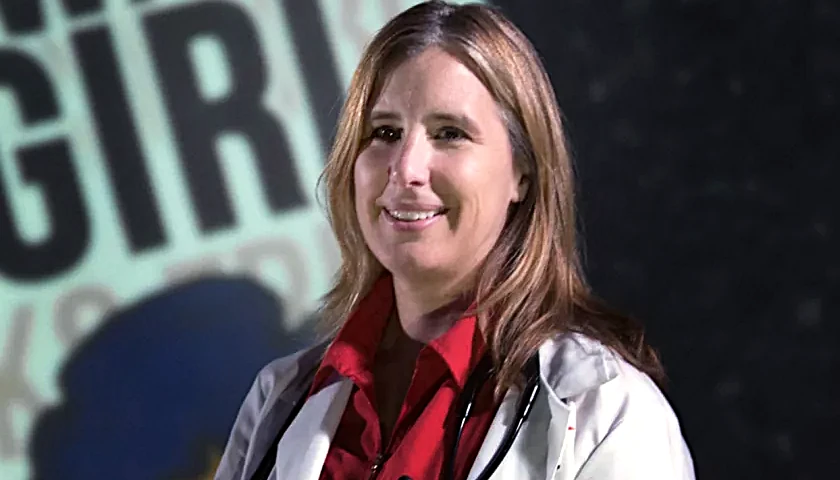by Laurel Duggan
A study purporting to debunk the theory that social contagion contributes to transgender identity has several fundamental flaws, according to experts who reviewed the study.
The study — ‘Sex Assigned at Birth Ratio Among Transgender and Gender Diverse Adolescents in the United States’ — used findings from the flawed methodology to recommend that female adolescents who identify as trans be provided “gender affirming care,” a common euphemism in the activist community to describe chemical and surgical interventions for sex changes. The lead author of the study, Dr. Jack Turban, is himself a member of the LGBT community and an outspoken advocate for such interventions.
“There’s been an extraordinary rise is young females identifying as transgender and seeking gender care in every country that’s catalogued this. We see it in schools, we see it in clinics, we see it at the world’s largest pediatric gender clinic, GIDS at Tavistock, which saw a 5,337% rise in adolescent girls in the last decade,” Stella O’Malley, Irish psychotherapist and founder of the gender-critical organization Genspect, told the Daily Caller News Foundation.
Gender dysphoria patients used to be composed almost exclusively of two cohorts, young boys and middle-aged men, but a meteoric rise in teenage girls seeking “gender-affirming care” began about ten years ago, O’Malley said.
The study examined data from 2017 and 2019 — during which the proportion of transgender people who were female at birth reportedly increased slightly but remained under 50% — and argued that this invalidated concerns that identifying as transgender is a social contagion that’s primarily impacting adolescent girls.

Researchers assumed that the sex reported by transgender respondents was their biological sex at birth, but it’s unclear if that was actually the case, since the survey simply asked respondents “What is your sex?” according to University of Oxford Sociologist Michael Biggs. The possibility that researchers incorrectly assumed transgender respondents meant “sex at birth” when they reported their sex would explain why the study’s findings reach the opposite conclusion of related studies which explicitly asked about sex at birth, which have found that biological females vastly outnumber biological males among transgender people, according to Biggs.
If some or most transgender respondents reported their gender identity rather than their biological sex, it would help explain anomalies in the data, Biggs argued: transgender respondents who reported a male sex were 2.5 centimeters shorter than those who identified their sex as female.
The proportion of youth who were transgender decreased from 2.4% in 2017 to 1.6% in 2019, and the rate of born-male to born-female transgender youths went from 1.5:1 to 1.2:1.
“Overall, the percentage of adolescents who were openly transgender wasn’t dramatically different in 2017 and 2019,” Dr. Jack Turban, M.D., lead author on the study, told the Daily Caller News Foundation. “There certainly was not a substantial increase in the percentage, and if anything there was a small decrease.”
Turban said the study relied on data from 2017 and 2019 because the Centers for Disease Control and Prevention only began collecting this data in 2017.
Despite methodological issues with the study, several media outlets parroted the researchers’ conclusions uncritically and touted the study as evidence that transgender identity isn’t a social contagion. An NBC article said the study found that social contagion isn’t causing the increases in youths identifying as transgender, as did articles in U.S. News and The Hill.
“The hypothesis that transgender and gender diverse youth assigned female at birth identify as transgender due to social contagion does not hold up to scrutiny and should not be used to argue against the provision of gender-affirming medical care for adolescents,” study senior author Dr. Alex S. Keuroghlian said in a statement to NBC.
Candice Jackson, former Assistant Secretary of Education for Civil Rights, echoed Biggs’ concerns that the researchers misinterpreted the sex of respondents and added that the study couldn’t grapple with obvious examples of social contagion.
“There is no explanation given for how, unlike with homosexuality, we’re seeing entire friend groups and entire segments of classrooms adopting trans identities together,” she told the DCNF.
“One thing this study highlights is that, because we have already gone down the road of accepting in the legal realm, the scientific realm and the medical realm, the notion that sex is so offensive to some people that you might not even ask about it or expect a factual answer,” Jackson said. “We’re already losing the credibility and quality of demographic data. That’s a problem in and of itself.”
– – –
Laurel Duggan is a reporter at Daily Caller News Foundation.
Photo “Transgender Boy Holding Smartphone” by Rosemary Ketchum.






All the Phd’s and doctors can’t figure out what my 14 year old granddaughter who lives a major northern city told me. She ran around with the trans kids and talked to me about it. She said she wasn’t “transgender” but she didn’t have any other clique to be a part of in school and, besides, it was super cool. She recently turned 18, is gorgeous and super feminine looking, no more green and pink hair, ill-fitting tee shirts and hoodies and tough attitude. And she has plenty of normal friends. Luckily my daughter saw what was going on and knew it was a passing phase. The schools and doctors and therapists who urge these kids to take hormones and have surgery are committing grave sins.